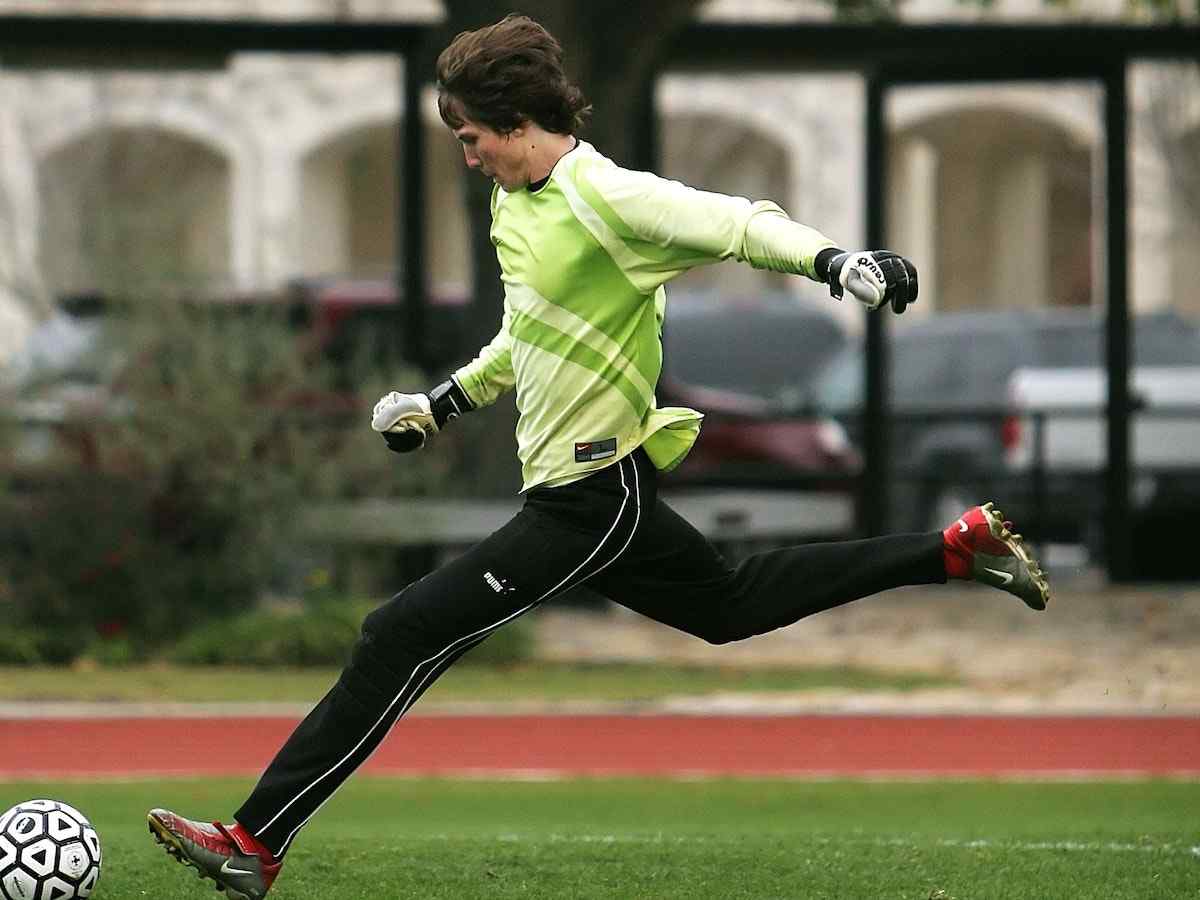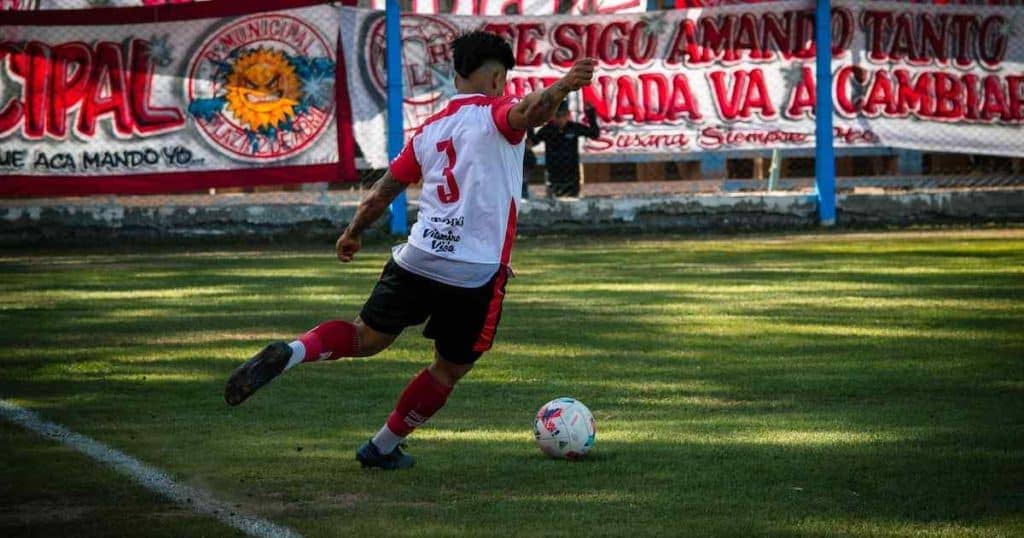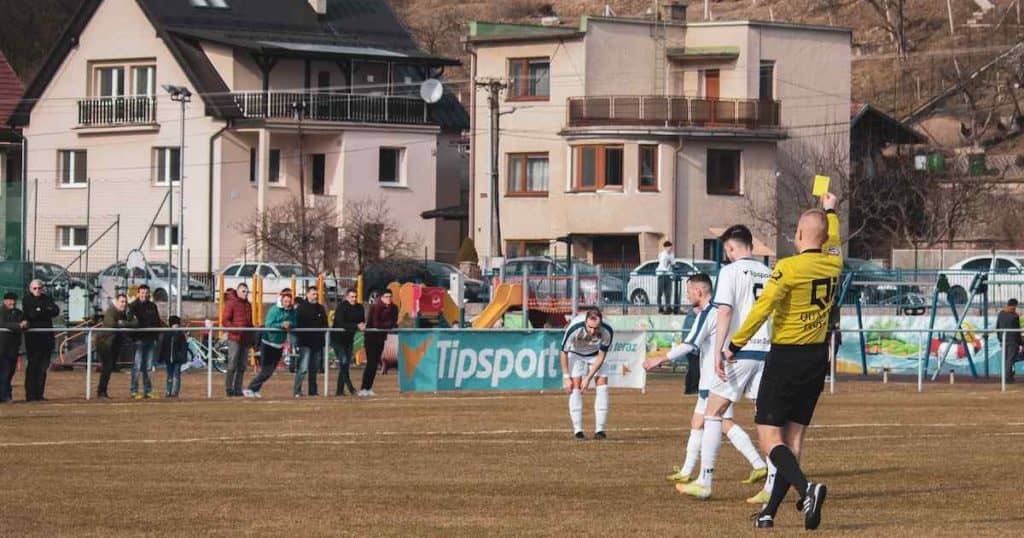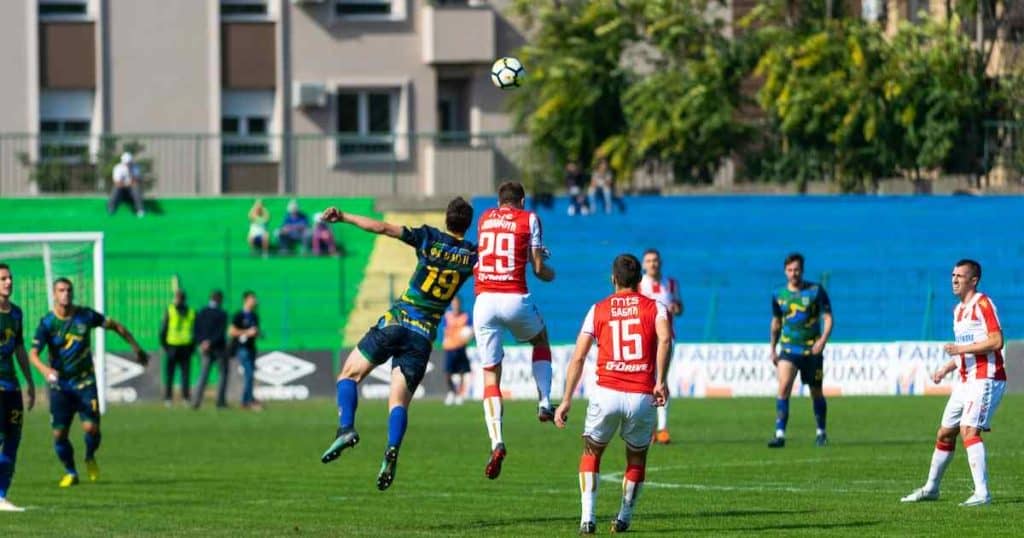
Are you a soccer fanatic curious to know how many college players actually make it pro? Look no further. We’ve done the research and discovered some surprising stats that may just surprise you. Uncovering the reality behind the allure of becoming a professional athlete, we explore how many college soccer players go pro and what it takes to become one of them.
The number of college soccer players who go on to become professionals is surprisingly low. According to the NCAA, only about 1.5% of all college soccer players are drafted into Major League Soccer each year. This means that out of almost 200,000 total collegiate soccer athletes in 2017-18, just 3,000 were selected for further consideration by a professional team. The odds may be long, but it’s still possible for any talented player who puts in hard work and dedication!
Related: How Do High School Soccer Seasons Work? – Explained
Background On Soccer In College
Soccer, also known as football, is a beloved sport around the world and college campuses in the United States are no exception. College soccer is unique in that it combines the high-level competition of professional soccer with the spirit of amateur sports. This creates an exciting and dynamic environment for players and fans alike.
Many colleges in the United States have men’s and women’s soccer teams, with both programs often having a strong tradition of success. These teams are typically divided into divisions, with the top division being the NCAA Division I.

In this division, the best teams from around the country compete for the national championship. The competition is fierce, and the level of play is incredibly high, with many players going on to play professionally after their college careers are over.
In addition to the competitive aspect, college soccer also provides students with opportunities to further their education and grow as individuals. College soccer players are student-athletes, meaning they must balance their academic responsibilities with their athletic commitments.
This can be challenging, but it also teaches valuable life skills such as time management and discipline. Additionally, playing college soccer can provide opportunities for networking and career advancement after graduation.
Professional Opportunities For Soccer College Players
After college, many soccer players aspire to take their game to the professional level. There are several different professional leagues and opportunities available to college players, each with its own unique characteristics and requirements.
One of the most well-known professional leagues in the United States is Major League Soccer (MLS). The league was founded in 1996 and currently comprises 26 teams, with plans to expand to 30 teams in the near future.
The league has a diverse group of players, with many coming from college soccer programs. The level of play in MLS is considered to be high and the league continues to grow in popularity, with more and more fans tuning in to watch the games.

Another opportunity for college players is to try out for teams in leagues outside the United States. This can include leagues in countries such as Europe, South America and Asia. These leagues often have a higher level of play and more exposure than those in the United States.
However, making it to a team in one of these leagues can be very difficult and requires a high level of skill and dedication.
Additionally, professional soccer also includes the opportunity to play for national teams. National teams play in international competitions such as the World Cup, and the European Championship.
College players with the right combination of skill and dedication may have the opportunity to represent their country on the national level. This can be a once in a lifetime opportunity, with the chance to play against the best players in the world and the chance to represent their nation on the global stage.
NCAA Regulations And Restrictions On Professional Soccer Play
he National Collegiate Athletic Association (NCAA) is the governing body for college sports in the United States, and as such, it has rules and regulations in place that affect college soccer players who want to pursue professional careers.
These regulations are put in place to ensure that student-athletes are able to maintain their eligibility to play college sports while also pursuing their dreams of playing professionally.
One of the most significant regulations is that college players are not allowed to sign professional contracts while still enrolled. This means that college players cannot accept payment or sign a contract with a professional team while they are still in school.
This rule is in place to protect the amateur status of college sports, and to ensure that student-athletes are able to maintain their eligibility to play college sports.

Another regulation is that college players are not allowed to participate in professional leagues or competitions during the academic year. This means that college players cannot play in professional leagues or tournaments during the fall and spring semesters.
This rule is put in place to ensure that student-athletes are able to focus on their studies and maintain their eligibility to play college sports. However, college players can participate in professional leagues or competitions during summer or winter breaks.
Additionally, the NCAA has strict rules around the representation of student-athletes. Student-athletes are not allowed to have agents or attorneys negotiate contracts for them, and they can only sign contracts with agents or attorneys after they have completed their college eligibility or have written permission from the NCAA.
This is to ensure that student-athletes are not taken advantage of and that they receive fair compensation for their services.
Can You Go Pro From D2 Soccer?
The question of whether or not a player can go pro from Division 2 soccer is a complex one with many factors to consider. While it is certainly possible for a player to make the jump from D2 to the professional ranks, it is important to understand that the path to professional soccer is a challenging one, and the odds of success are not always in a player’s favor.
One of the main factors to consider is the level of competition in D2 soccer. Division 2 is considered to be a step below Division 1 in terms of the level of play, and as such, it may be more difficult for a D2 player to make the jump to the professional ranks.
However, it is important to note that many Division 2 programs have a strong tradition of success and many talented players, so the level of competition can vary greatly depending on the program.
Another factor to consider is exposure. Division 2 soccer players may have less visibility than Division 1 players, which can make it more difficult for them to get noticed by professional teams. However, there are many ways for D2 players to increase their visibility, such as participating in professional trials or playing in summer leagues.
Additionally, many Division 2 programs have connections with professional teams, which can provide opportunities for players to showcase their skills to professional coaches and scouts.
Finally, it is important to understand that going pro from D2 soccer is not only about talent, but also about hard work, dedication, and perseverance. Even the most talented players may face obstacles on their path to the professional ranks, but anything is possible with a strong work ethic and a positive attitude.
How Many NCAA Soccer Players Go Pro?
it is generally agreed that the percentage of NCAA soccer players who go on to play professionally is relatively small. The exact number can vary, but it is estimated that only a small fraction of NCAA soccer players make it to the professional ranks.
One of the main factors that contribute to the low percentage of NCAA soccer players who go pro is the level of competition. The NCAA is known for its high level of play, but it is still considered to be a step below professional leagues.
This means that many NCAA players may not have the skill set or physical attributes required to compete at the professional level.
Another factor to consider is exposure. Many NCAA soccer players may not have the same level of visibility as players from other leagues, which can make it more difficult for them to get noticed by professional teams.
Additionally, many NCAA players may not have the same level of experience playing in front of large crowds or under intense pressure, which can be a significant adjustment when transitioning to the professional ranks.
Finally, it is important to understand that not all NCAA soccer players aspire to play professionally. Some players may choose to focus on their studies or pursue other career opportunities after college. Additionally, some players may choose to continue playing at the amateur level or semi-professional level, but not pursue professional soccer as a career.



